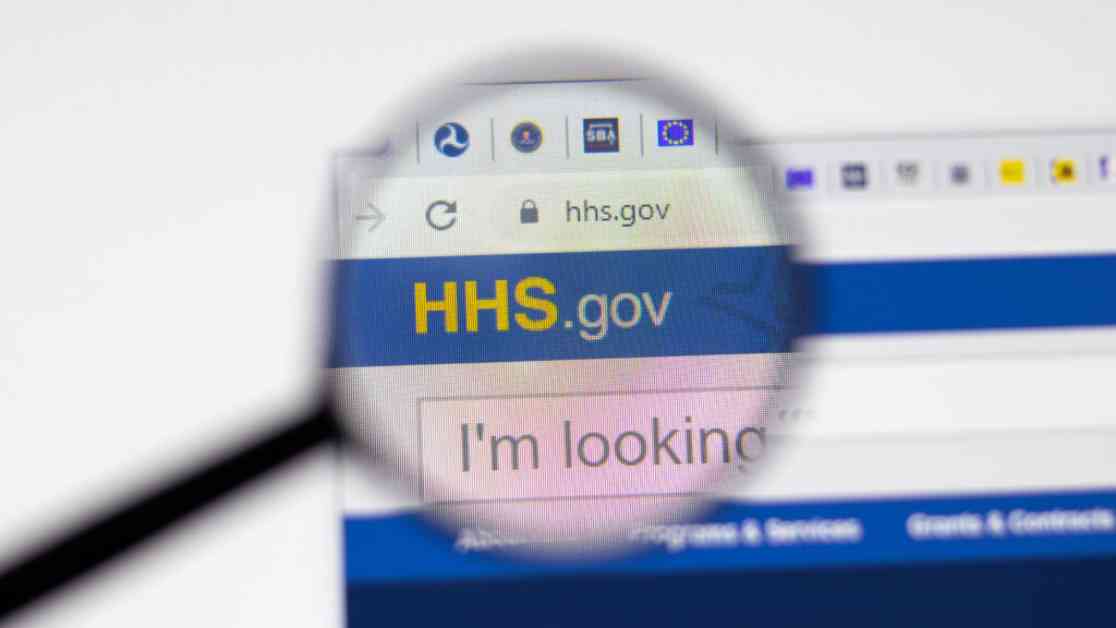Benefits and Challenges of HHS’s Use of AI and Telehealth in Healthcare
How the Department of Health and Human Services (HHS) is Embracing AI
The Department of Health and Human Services (HHS) has taken a bold step into the future by releasing its AI Use Case Inventory, a comprehensive overview of the AI tools being utilized within the agency. These tools vary from Microsoft Word autocorrect to a developing “HHSGPT” system that can identify sewage facilities from photos. The majority of these tools are focused on text-based tasks, such as assisting with sorting comments on proposed rulemaking, de-duplicating adverse event reports, and processing internal text data using natural language processing techniques.
It is crucial to note that not all of these tools are fully operational yet, with some already being marked as “retired.” This year, the agency disclosed a total of 271 tools, marking a significant 66% increase from the previous year. The National Institutes of Health (NIH), Centers for Disease Control and Prevention (CDC), Centers for Medicare and Medicaid Services (CMS), and Food and Drug Administration (FDA) collectively account for over 75% of these tools. However, the majority of the retired tools were from the CDC and NIH.
Unique Use Cases that Stand Out
Among the myriad of innovative initiatives, two use cases have particularly captured attention. The Centers for Medicare and Medicaid Services (CMS) have introduced a tool named “Medicare Part C/D Plan Oversight of AI Used for Prior Authorization and Utilization Management.” This tool is designed to detect outliers in claims, payments, and complaints data to assess compliance with CMS regulations. On the other hand, the Office of Refugee Resettlement (ORR) Unaccompanied Children Bureau has implemented “process digital twins” to run hypothetical scenarios. This tool aims to enhance strategic and contingency planning for unaccompanied refugee minors under the bureau’s care.
FDA’s Approval of Pediatric AI Devices
A recent study published in JAMA Pediatrics has shed light on the validation process of AI and machine learning-enabled medical devices for pediatric use. Shockingly, 22 FDA-authorized devices for children were validated solely on adult data, while 99 devices lacked data on pediatric testing. This revelation raises concerns about the efficacy and safety of these devices for pediatric patients. Marla Sammer, a clinical affairs expert, warns that tools trained on adults and later applied to children have shown inferior performance in pediatric settings.
Funding for Brain-Computer Interfaces
Precision Neuroscience, a prominent brain-computer interface (BCI) company, has secured a substantial $102 million in Series C funding. This funding boost will fuel the development and testing of their implant technology, which enables individuals with paralysis to operate digital devices through their thoughts. Despite the promising prospects for BCIs, industry experts suggest that BCI companies, akin to biotech startups, face financial constraints that may impede their growth. The market potential for BCIs is estimated at $400 billion, signaling a lucrative yet challenging landscape for these innovative technologies.
The Intriguing Case of BD’s Alaris Infusion Pump
Becton, Dickinson and Company (BD) has recently settled with the Securities and Exchange Commission (SEC) for $175 million due to misleading investors about its Alaris infusion pump. This infusion pump, a significant revenue source for BD, has been embroiled in controversies including recalls, cybersecurity warnings, and distribution halts. The SEC’s investigation revealed alarming decisions made by BD, such as selling the pump without FDA clearance for crucial software changes and ignoring critical flaws that posed risks to patients. This case serves as a cautionary tale about the ethical and regulatory challenges in the healthcare technology industry.
Intriguing Developments in the Health Tech Sector
As the healthcare technology landscape continues to evolve rapidly, companies like Terray Therapeutics and Intrivo are making noteworthy strides. Terray Therapeutics has secured a collaboration deal with Gilead Sciences to develop small-molecule drug candidates, signifying a promising partnership in the pharmaceutical industry. On the other hand, Intrivo is transitioning from Covid testing to an AI-powered weight loss coach, reflecting the dynamic nature of health tech startups in responding to market demands and trends.
The Future of Telehealth and AI in Healthcare
As policymakers debate the future of telehealth regulations, there is a growing consensus to extend pandemic-era flexibilities for an additional two years. This decision aims to ensure continued access to telehealth services for patients and providers, reflecting the increasing importance of digital healthcare solutions in the post-pandemic world. The intersection of telehealth, AI, and traditional healthcare services is reshaping the healthcare landscape, promising greater accessibility, efficiency, and patient outcomes.
In conclusion, the integration of AI and telehealth technologies in healthcare presents both opportunities and challenges for stakeholders across the industry. As government agencies, companies, and healthcare providers navigate this evolving landscape, addressing ethical, regulatory, and technical considerations will be paramount to realizing the full potential of these transformative technologies. Stay tuned for more updates on the latest advancements and implications of health tech innovations as they continue to shape the future of healthcare delivery and patient care.

















